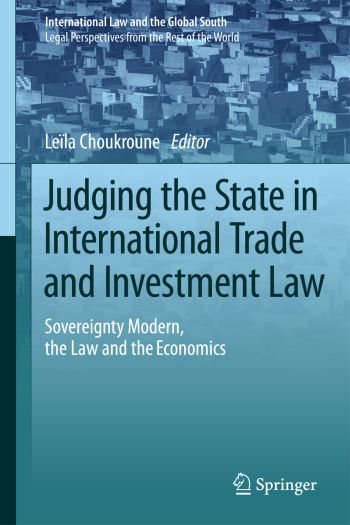We will be closed from 5pm Thursday 17th April for the Easter Bank Holidays, re-opening at 8.30am on Tuesday 22nd April. Any orders placed during this period will be processed when we re-open.

This book addresses concerns with the international trade and investment dispute settlement systems from a statist perspective, at a time when multilateralism is deeply questioned by the forces of mega-regionalism and political and economic contestation. In covering recent case law and theoretical discussions, the book's contributors analyze the particularities of statehood and the limitations of the dispute settlement systems to judge sovereign actors as autonomous regulators. From a democratic deficit coupled with a deficit of legitimacy in relation to the questionable professionalism, independence and impartiality of adjudicators to the lack of consistency of decisions challenging essential public policies, trade and investment disputes have proven controversial. These challenges call for a rethinking of why, how and what for, are States judged. Based on a "sovereignty modern" approach, which takes into account the latest evolutions of a globalized trade and investment law struggling to put people's expectations at its core, the book provides a comprehensive framework and truly original perspective linking the various facets of "judicial activity" to the specific yet encompassing character of international law and the rule of law in international society. In doing so, it covers a large variety of issues such as global judicial capacity building and judicial professionalism from an international and domestic comparative angle, trade liberalisation and States' legitimate rights and expectations to protect societal values, the legal challenges of being a State claimant, the uses and misuses of imported legal concepts and principles in multidisciplinary adjudications and, lastly, the need to reunify international law on a (human) rights based approach.